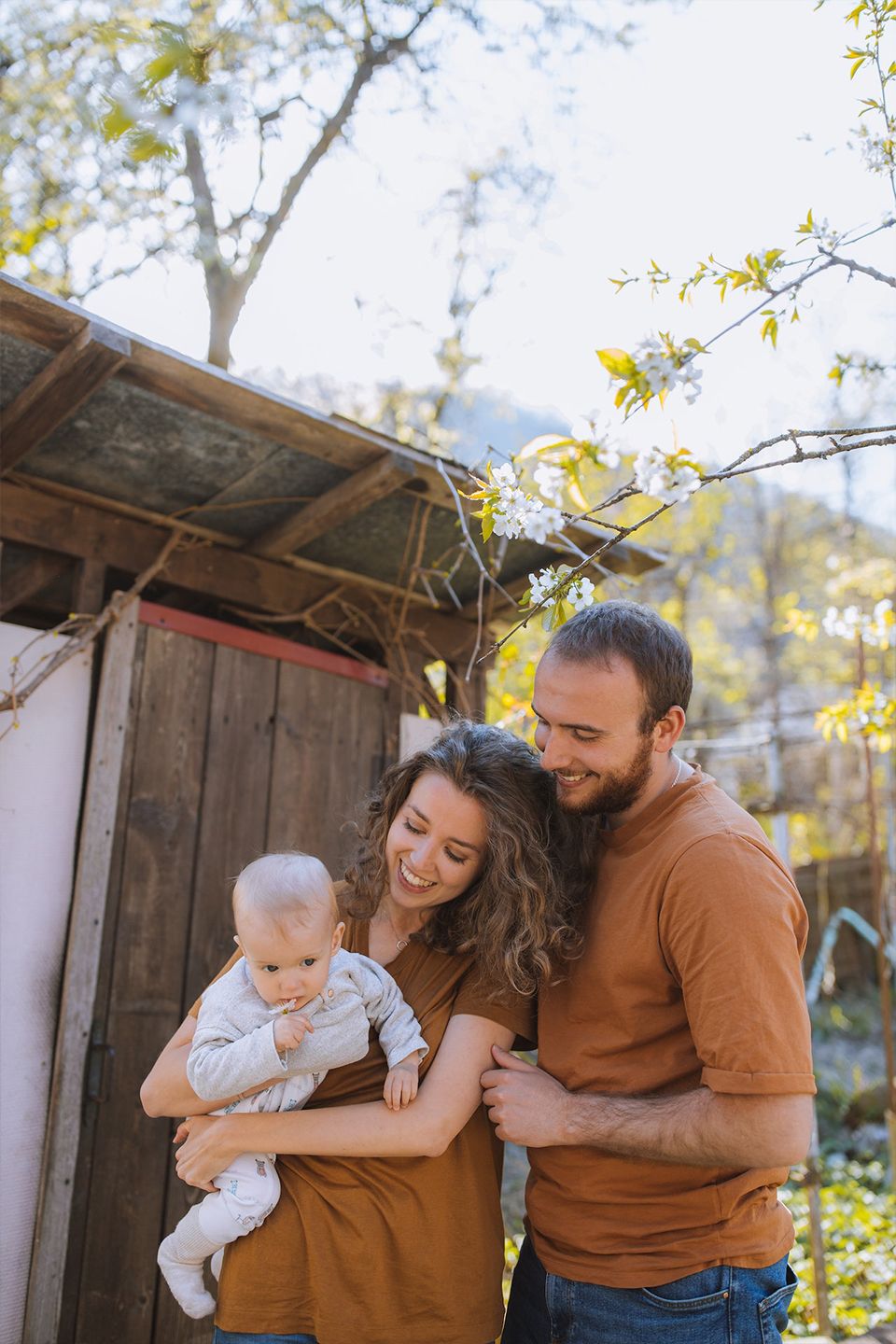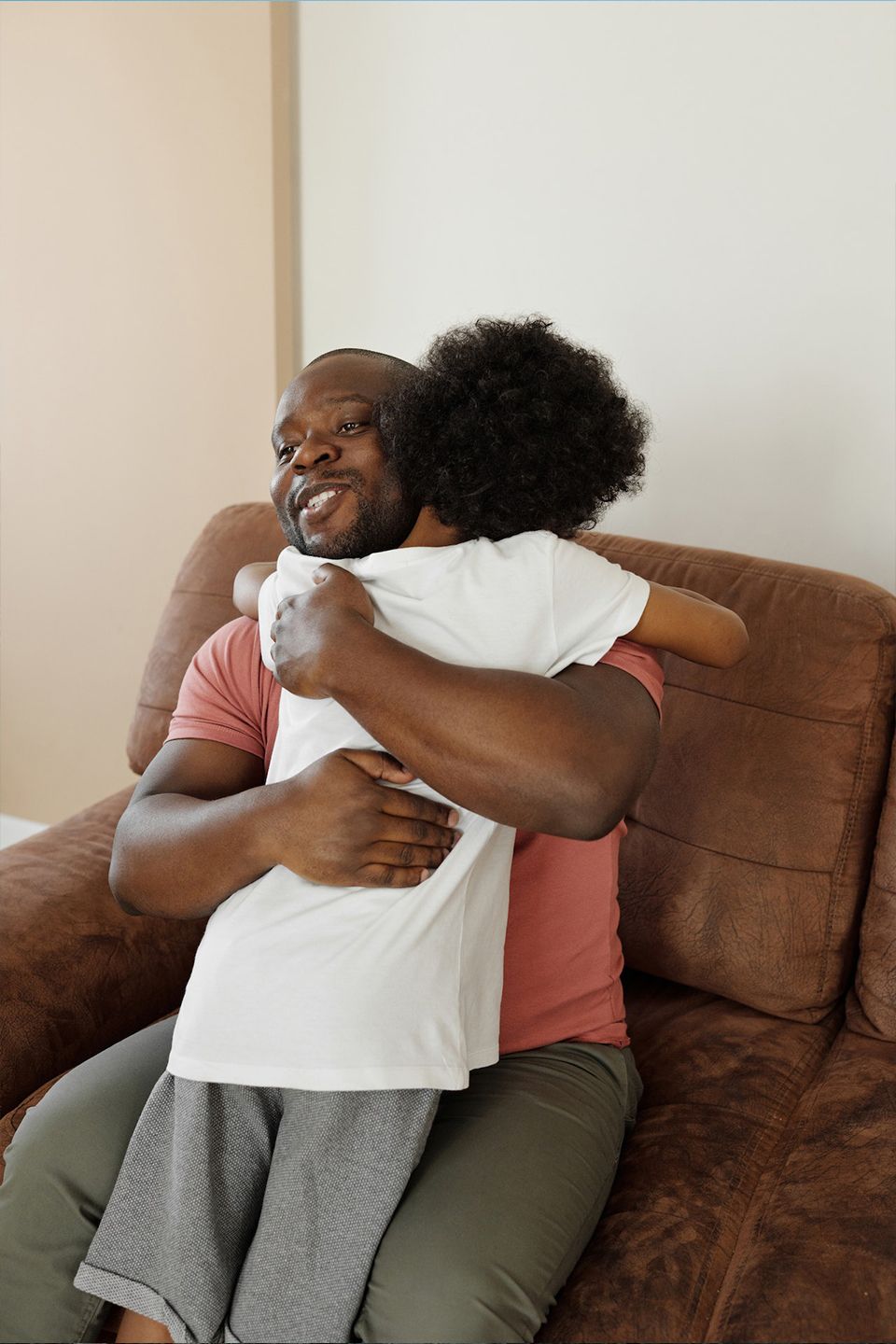Your Family
Relatefulness can benefit family relationships by fostering love, empowerment, healing, and authenticity. In this writing, Dagny speaks as a mother, describing how being present with children, connecting with their natural flow, and having an open attitude can deepen relationships with them and ourselves. Relatefulness also emphasizes self-awareness and self-compassion, allowing us to take responsibility for our mistakes with understanding. Ironically, this helps us set compassionate boundaries that support healthy development and integration with the world at large. Ultimately, being Relateful invites us to let go of expectations and embrace life as it unfolds.
The 7 Elements of Relatefulness/circling I think are amazing in connection with children
 Written by Dagny Hov
Written by Dagny Hov
1. Being present with them.
Not focusing on external distractions or your inner mental noise, but slowing down and attuning to and really listen to them. Being with them in their world without wanting to change or fix anything. That is so crucial and nourishing in the relationship. To me that is a profound expression of love.
We all know how tempting it is to whip out your phone or pay more attention to your anxieties at work than your children. Being Relateful helps us see these automatic habits as they’re happening, attend to the deeper unmet needs, and make a more conscious choice.
2. Teaching boundaries through integrity and self-trust
Connecting with and being guided by embodied spontaneous flow and aliveness, is an empowering and healing self-attitude in connection. Modeling that and conveying to my children the importance of caring about their own integrity, listening to themselves, acknowledging what they really feel and want in their heart and gut. This way they learn boundaries as natural expressions of what’s true, can stand up for what’s right in the face of peer pressure, and can protect themselves from the myriad of unhealthy influences they’re bound to confront on the internet, at school, and eventually in adulthood.
Allowing children to be what they are is especially difficult when we watch them suffering, and when they become adults. Our hearts ache and we think we know what's best for them. Being with people in a Relateful way shows us over and over again that we're wrong—even when we do know a better way, forcing it on someway else almost always obscures our own personal wounding, and ends up in disempowerment and resentment on both sides. You can train a better way.
3. Embracing the whole range of human experience
The inclusiveness and open and curious attitude in connection, welcoming their whole range of spontaneous expressions and emotions, instead of rejecting some of it as bad or unacceptable. My fundamental attitude is that on one level everything about our children are beautiful and unique creative expressions of life force, like an amazing work of art unfolding. And from that place the guiding of them can happen.
Most of us learned somewhere along the way that certain emotions are unacceptable. Without bringing more awareness and acceptance to the whole range of human experience, we end up passing on repression to our children, missing the opportunity to teach them healthy and unhealthy expressions, and missing the cues of what’s appropriate or inappropriate for their particular developmental capacity. The Relateful approach helps us see the context and embrace the change.


4. Taking responsibility for our own stuff
The practice emphasizes being aware of myself and my emotions, honouring myself and my boundaries and needs, and noticing when I project on others emotions I don’t accept in myself. Practicing this has made me pause, stop and feel into myself instead of putting things on my children, asking what needs and wounds are showing up in myself in the situation, exploring how I can take responsibility for my own stuff. The result is being able to love our children exactly as they are.
Boundaries don't have to be a struggle. Relatefulness helps us in giving and receiving a healthy "no" while maintaining connection, flexibility, and openness to compromise. We can then appreciate this in our children and nourish it so it's a natural way they interact with the world.
5. Appreciating their uniqueness
Relatefulness leads to the experience that we are all interconnected, and we are meant to express ourselves as unique parts of the unfolding ever-creating universe. That attitude in meeting my children feels to me as fundamentally accepting my children in their unique spontaneous self-being. It is also a delight and intense joy in this experience, happiness that my children are exactly the way they are, that they are fundamentally perfect and wonderful and I wouldn’t change anything about them.
6. Celebrating mistakes: the relateful dance with uncertainty in parenting
To be a parent is to make mistakes every day, it is hard, and in the busyness and pressure of everyday life it can be challenging. Circling and Relatefulness emphasizes being authentic, and to me it's important to tell my children that we as adults make mistakes. It is important to feel self-compassion and love for myself in that too, because we are humans and our humanness is vulnerability and we will never be perfect, that is a part of the beauty of it.
In the Relateful approach, mistakes are celebrated as how we learn. In holding appreciating our mistakes as ways of growing, we learn to dance with uncertainty and find ways to lean into the complex and mysterious without needing to control it.
7. Letting go of seriousness and embracing paradox
Somehow it also feels like Relatefulness has added a context where things aren’t so serious, all our beliefs about how things are supposed to be doesn’t feel that important in the long run because there is a higher wisdom in life which unfolds when we let go of our ideas about what should happen. So in this perspective everything unfolds exactly as it's supposed to.
One of the great gifts of being Relateful is holding seeming paradoxes or contradictory views at the same time, both inside of ourselves and inside of a group. Tension and disagreement are no longer things to avoid, but generators of creativity and ways of being present to a much more holistic view of reality-experience. Holding this sense of “Everything unfolds exactly as it’s supposed to” and at the same time holding that I want my children to be well-functioning, good at school and have friends, feels very alive and meaningful in connection with them. It creates freedom, trust and joy in our relationship. It models a much wider embrace of experience, letting them know they’re loved no matter what without discouraging drive, excellence, and character-formation. It allows us to be playful.
Practicing Relatefulness in our relationships with our children can bring immense benefits, not just for them but for ourselves as well. By being present, authentic, and available to their developmental unfolding, we can rest in awe and appreciation of the way life journeyed from an exploding star to this brilliant child we’re blessed to inhabit a life with.
In this spacious awareness that welcome all of our reactivity and allows us to be present to it without being hijacked by it, we can cultivate self-awareness and self-compassion. We can develop a greater understanding of ourselves and our patterns, stopping the unhealthy habits we often don’t even realize we have. Our parenting journey becomes more gracious and easeful, even in the face of tantrums, meltdowns, and our own foibles.
We hope this will inspire you to be more Relateful in your relationships with your children and to embrace the beauty of life as it unfolds.
Find out more about the author:
Dagny Hov
Facilitator at The Relateful Company
Book a Personal Focus Session
What does family mean for you?

Kids will bring out psychological lessons from your own childhood
Mar 02, 2023

Meta-Gift from Parenting—mistakes are how we learn
Dec 22, 2022

Toddler Parallels: The Dirty Sock Cycle
Dec 08, 2022

Toddler Lessons for Adults
Oct 13, 2022

What if Hands are to Babies as Love is to Us?
Apr 14, 2022

Expanding The Self as a Construct: Lava Rock Learning to Walk
Jan 13, 2022













